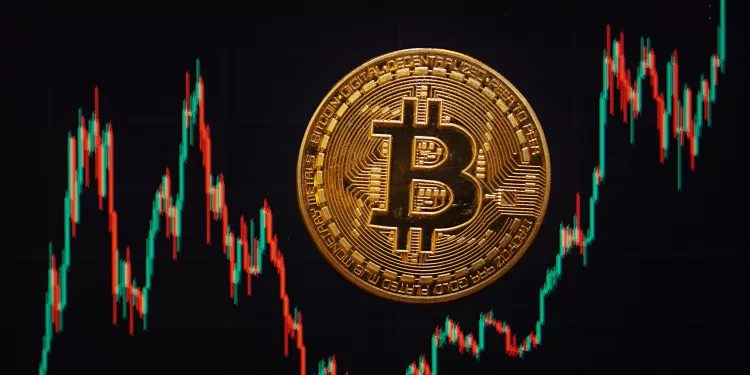- Bitcoin’s resilience strengthens its role as a long-term asset amid market shifts.
- Regulatory easing and tokenization fuel institutional interest in digital assets.
- Crypto platforms expand adoption through improved accessibility and security.
The cryptocurrency landscape continues to evolve, with Bitcoin leading the charge despite market volatility. Investors and institutions are closely monitoring its trajectory, particularly as regulatory shifts and economic conditions create new opportunities. As per Bloomberg report analysts are optimistic, predicting Bitcoin could reach $1.5 million by 2030.
While this target may seem ambitious, various factors contribute to this outlook, including institutional adoption, deregulation, and macroeconomic shifts. Additionally, the tokenization trend and the growing role of digital wallets further shape the future of crypto investments.
Bitcoin’s Position in a Risk-Off Environment
Bitcoin has become a key asset in a risk-off environment, where investors seek safer alternatives amid financial uncertainty. Despite recent outflows, its resilience signals strength in the broader crypto market. Moreover, deregulation in the United States is expected to encourage institutional investors to allocate capital to Bitcoin.
This shift enhances risk-adjusted returns in investment portfolios, reinforcing Bitcoin’s role as a long-term store of value. Additionally, expectations of Federal Reserve rate cuts driven by slowing inflation and a rolling recession could further support Bitcoin’s upward momentum. These economic conditions create an opportunity for investors looking to capitalize on digital assets.
Impact of Regulatory Changes on Crypto Adoption
The regulatory environment continues to shape the cryptocurrency market, with recent developments signaling greater acceptance of digital assets. The Trump family’s positive stance on cryptocurrency aligns with the broader trend of regulatory easing.
However, while some regulations aim to support innovation, others highlight risks associated with speculative assets such as meme coins. These coins often lack intrinsic value and could leave investors with significant losses.
Nonetheless, the SEC’s decision to classify them as non-securities shifts the responsibility to investors, reinforcing the importance of due diligence. Meanwhile, tokenization presents an alternative investment model, allowing companies to raise funds directly through digital assets. This innovation could disrupt traditional venture capital, fostering a more decentralized investment ecosystem.
Growing Role of Digital Wallets and Crypto Platforms
Beyond Bitcoin, digital wallets and crypto exchanges play a crucial role in facilitating mainstream adoption. Companies like Coinbase and Robinhood have made significant progress in improving user accessibility.
Coinbase specializes in crypto, while Robinhood integrates equities, providing investors with diverse options. These platforms are positioned to benefit from the growing tokenization movement and the increasing demand for secure, user-friendly trading interfaces.














